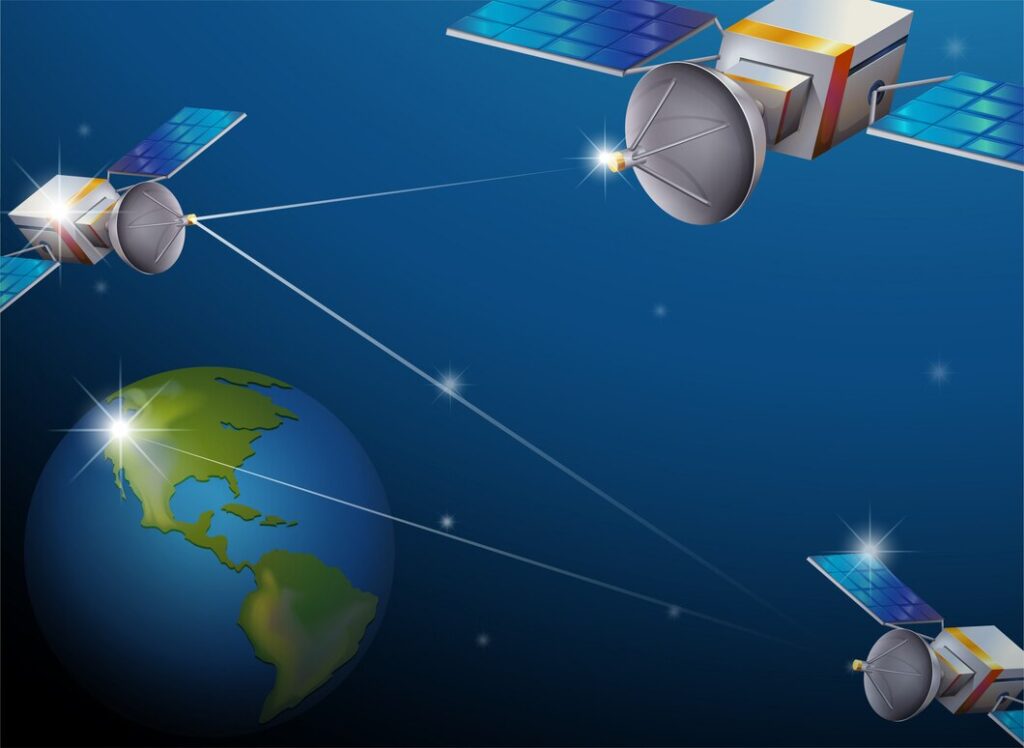Space technology, once the domain of government agencies and military entities, has now become an essential aspect of our everyday lives. The evolution of space technology has not only enabled space exploration but has also led to significant advances in communication, navigation, global connectivity, weather prediction, and even disaster management. Today, the impact of space technology is profound and far-reaching, touching almost every aspect of modern society. As we continue to make breakthroughs in space exploration and satellite technology, the potential for these innovations to shape the future of humanity is immense.
In this article, we will explore how space technology has transformed various sectors of society and look at its continuing influence on fields ranging from communications and global positioning to healthcare and environmental monitoring. We will also examine the evolving role of private companies in the space industry and the societal implications of this new space age.
Key Takeaways
- Space technology is pivotal in communication, navigation, weather forecasting, and disaster management.
- Private companies have significantly reduced the cost of space exploration, making space more accessible for both commercial ventures and government missions.
- Space technology has improved healthcare through innovations in remote monitoring, medical imaging, and disease treatment.
- The future of space technology includes space tourism, asteroid mining, and the potential for interplanetary colonization.
- The benefits of space technology are not limited to space exploration but extend to solving real-world problems on Earth, from climate monitoring to emergency response.
The Evolution of Space Technology
Space technology refers to the tools, equipment, and knowledge used to explore and utilize outer space. From the early days of rocketry in the 20th century to the advent of satellites and the growing interest in space tourism, space technology has undergone dramatic advancements. The launch of Sputnik 1 by the Soviet Union in 1957 marked the beginning of the space race, and soon after, other milestones such as the moon landing in 1969 and the launch of the first space shuttle followed. Since then, space technology has evolved to support complex satellite systems, interplanetary exploration, and even human missions to Mars.
Over time, space technology has moved beyond governmental space agencies, like NASA and the European Space Agency (ESA), to embrace commercial space companies such as SpaceX, Blue Origin, and Virgin Galactic. These private entities are now driving much of the innovation in the space industry, creating new opportunities for commercial space ventures and opening the door for space exploration to the private sector.
Impact of Space Technology on Communication

One of the most obvious ways that space technology has affected modern society is through its profound influence on communication systems. The launch of satellites into orbit has revolutionized telecommunications, enabling global communication, weather forecasting, television broadcasting, and internet connectivity.
Before the advent of satellite communication, long-distance telephone calls, international broadcasts, and global data sharing were slow, expensive, and often unreliable. Satellites have now made it possible for information to travel across the globe at the speed of light, creating an interconnected world. Geo-stationary satellites, which remain fixed above a particular region, allow for real-time communication across vast distances. For example, communication satellites enable services such as satellite TV, satellite radio, and GPS, which have become essential to modern life.
In addition to traditional communication channels, space technology has paved the way for new forms of internet access. Low-Earth Orbit (LEO) satellite constellations, such as those being developed by companies like SpaceX’s Starlink, are working to provide high-speed internet to remote and underserved areas across the world. This has the potential to bridge the digital divide and offer opportunities for people in rural and developing regions to access education, healthcare, and business opportunities previously unavailable to them.
Space Technology and Global Navigation
Global navigation and positioning systems (GNSS) are another area where space technology has made a lasting impact. The most well-known GNSS is the Global Positioning System (GPS), a system of satellites orbiting the Earth that allows users to pinpoint their exact location anywhere on the planet. GPS has revolutionized how we navigate the world, from personal use in smartphones and car navigation systems to its applications in agriculture, aviation, shipping, and military operations.
GPS technology is now ubiquitous, providing users with not only directions but also timing and geospatial data for a wide range of applications. Precision agriculture, for example, uses GPS to monitor and manage crop planting, irrigation, and harvesting processes. GPS is also critical in sectors such as emergency response, where it helps first responders locate accident sites and coordinate rescue missions. The role of GPS extends even further into scientific research, where it is used in earthquake monitoring and climate studies.
Space-based navigation has not been limited to GPS. Other systems such as the Russian GLONASS, European Galileo, and China’s BeiDou also provide global navigation services. These systems enhance the redundancy and accuracy of global positioning services, providing global coverage in various regions.
Space Technology and Weather Forecasting

Another significant contribution of space technology to modern society is its impact on weather forecasting and climate monitoring. Satellites equipped with advanced sensors and imaging technology provide crucial data for weather prediction, enabling meteorologists to track storms, monitor climate patterns, and issue early warnings for severe weather events.
Weather satellites orbiting the Earth provide real-time observations of cloud formations, temperature changes, wind patterns, and humidity levels. These observations allow meteorologists to predict the likelihood of severe weather events such as hurricanes, tornadoes, and droughts with greater accuracy. The ability to monitor weather patterns from space is particularly important in the context of climate change, as it enables scientists to track long-term changes in atmospheric conditions, sea level rise, and ice cap melting.
Space technology has also contributed to disaster management. Satellites help assess the damage caused by natural disasters, including floods, earthquakes, and wildfires. By providing real-time imagery and data, these technologies allow governments and relief organizations to respond more quickly and effectively to emergencies, saving lives and minimizing damage.
Space Technology and Healthcare Advancements
Space technology has also made significant strides in improving healthcare systems worldwide. The benefits of space exploration extend beyond the technical aspects of rocket science and space travel; they have also led to innovations in medical technology and improved healthcare outcomes.
For instance, space-based research has led to the development of advanced medical imaging techniques such as MRI and CT scans, which were influenced by the need for non-invasive imaging methods during space missions. Similarly, innovations in remote monitoring and telemedicine, driven by satellite communication systems, allow for healthcare services to reach remote areas, where traditional infrastructure may be lacking.
In addition, space technology has helped develop new diagnostic tools, drug delivery systems, and treatments for conditions such as osteoporosis and muscle atrophy, which are of particular concern for astronauts who spend extended periods in microgravity environments. The research conducted to understand the effects of space travel on the human body has led to breakthroughs in osteoporosis treatments and rehabilitation technologies that benefit patients on Earth.
The Role of Private Companies in Space Technology

In recent years, private companies have played an increasingly prominent role in the development and deployment of space technology. Companies like SpaceX, Blue Origin, and Rocket Lab have brought new innovation to the field of space exploration, drastically reducing costs and increasing the frequency of space missions.
SpaceX, for example, has developed reusable rocket technology, significantly reducing the cost of launching payloads into space. Their Falcon 9 rocket, designed to return to Earth after delivering payloads to orbit, has been a game-changer in space technology, enabling more affordable and frequent missions. SpaceX has also been instrumental in the development of the Starship, a fully reusable spacecraft designed to carry humans to the Moon, Mars, and beyond.
The rise of private space companies has democratized space exploration, making space more accessible not only for governments but also for commercial ventures. As these companies continue to innovate, we are likely to see new opportunities for space tourism, asteroid mining, and other commercial activities that will further integrate space technology into modern society.
The Future of Space Technology
Looking ahead, the possibilities for space technology are vast. We are on the cusp of a new era in which humanity’s presence in space will become more permanent, with ambitious plans to establish colonies on the Moon and Mars. Space technology is also expected to drive the development of advanced space telescopes, asteroid mining operations, and even the potential for interstellar travel.
One of the most exciting areas of space technology is the growing interest in space tourism. Companies like Virgin Galactic and Blue Origin are already offering suborbital flights for paying customers, and while these flights are still limited in scope, the growth of the industry suggests that commercial space travel could become more accessible in the future.
Another exciting area is the potential for space mining. Asteroids are rich in valuable resources such as water, metals, and rare minerals. The ability to mine asteroids could not only provide the resources needed to sustain space missions but could also have a transformative effect on industries back on Earth, including energy production, manufacturing, and electronics.
Also Read : What Are The Benefits Of Nanotechnology?
Conclusion
Space technology has become an integral part of modern society, with its influence touching everything from communication and navigation to healthcare and environmental monitoring. As advancements continue, space technology will play an even more central role in addressing the challenges and opportunities of the 21st century. Whether through improving global connectivity, driving innovations in healthcare, or enabling the exploration of other planets, space technology has already had a transformative impact on how we live, work, and think about the world around us. The future of space technology holds boundless potential, and as we continue to push the boundaries of space exploration, its contributions to humanity will only grow more profound.
FAQs
How has space technology improved weather forecasting?
- Space technology, particularly weather satellites, allows for real-time observation of weather patterns, improving the accuracy of weather predictions and enabling early warnings for natural disasters like hurricanes and floods.
What are the benefits of satellite internet?
- Satellite internet, powered by low-Earth orbit satellites, provides high-speed internet access to remote and underserved areas, bridging the digital divide and offering new opportunities for education, healthcare, and business.
How do space technologies affect GPS systems?
- Space technology powers global navigation systems like GPS, enabling precise location tracking for a variety of applications, including navigation, agriculture, emergency response, and scientific research.
What are the health benefits of space technology?
- Space technology has led to advancements in medical imaging, remote healthcare services, and treatments for conditions like osteoporosis and muscle atrophy, benefiting both astronauts and the general population.
How do private companies contribute to space exploration?
- Private companies like SpaceX and Blue Origin have lowered the cost of space exploration through innovations such as reusable rockets, and they are now leading the charge in commercial space travel, satellite deployment, and potential missions to Mars.
What is the role of satellites in disaster management?
- Satellites provide real-time data and imagery during natural disasters, helping relief organizations assess damage, coordinate response efforts, and deliver aid more effectively.
How is space technology being used in environmental monitoring?
- Satellites and space-based sensors are critical in tracking climate change, monitoring air and water quality, and studying the impact of human activities on ecosystems.


